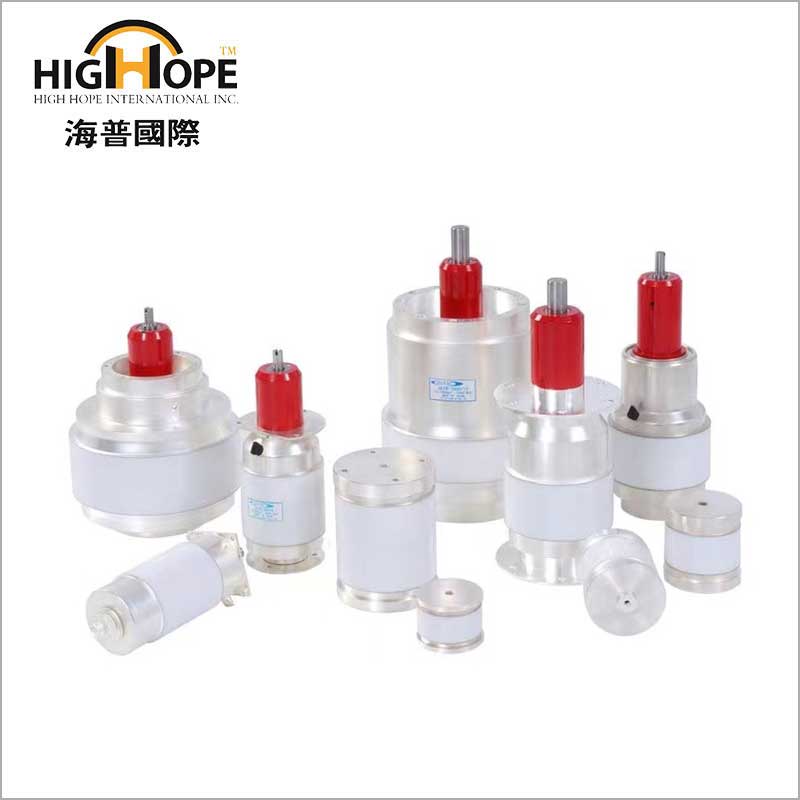Vacuum Capacitors: Key Components in High-Frequency and High-Power Applications
2025-06-19
In the world of electronics and RF (radio frequency) engineering, vacuum capacitors play a critical role in ensuring reliable performance under demanding conditions. Known for their high voltage handling, low losses, and excellent stability, vacuum capacitors are widely used in high-frequency circuits, broadcast transmitters, and industrial equipment. This blog explores what vacuum capacitors are, how they work, and their applications in modern technology.

What Is a Vacuum Capacitor?
A vacuum capacitor is a type of capacitor where the dielectric medium between the conductive plates is a vacuum instead of a solid or liquid insulator. By using a vacuum as the dielectric, these capacitors can achieve very high voltage ratings, minimal dielectric losses, and superior insulation properties compared to conventional capacitors.
How Do Vacuum Capacitors Work?
Vacuum capacitors consist of two or more metal plates (electrodes) enclosed within a vacuum-sealed glass or ceramic container. The absence of a dielectric material reduces energy loss caused by dielectric polarization, allowing the capacitor to handle high voltages and frequencies efficiently. Their design typically includes adjustable plates to vary capacitance, making them ideal for tuning applications.
Key Advantages of Vacuum Capacitors
High Voltage Capability
Can operate safely at voltages ranging from a few kilovolts up to hundreds of kilovolts.
Low Dielectric Loss
The vacuum dielectric eliminates losses common in solid or liquid dielectrics, improving efficiency.
High Stability and Reliability
Resistant to aging and environmental factors like humidity and temperature changes.
High Q Factor
Ensures low energy dissipation, important for RF and microwave circuits.
Adjustability
Many vacuum capacitors feature adjustable plates to fine-tune capacitance in real time.
Common Applications of Vacuum Capacitors
Radio Frequency (RF) Transmitters
Used for tuning and matching circuits in broadcast and communication transmitters.
Industrial RF Heating
Essential in machines that use RF energy for heating, welding, or sealing.
Particle Accelerators and Medical Equipment
Provide stable high-voltage capacitance for advanced scientific and medical devices.
Antenna Tuners and Impedance Matching
Help optimize antenna performance by adjusting resonance frequencies.
High-Power RF Amplifiers
Ensure efficient power transfer and minimize signal loss.
Factors to Consider When Choosing Vacuum Capacitors
Voltage Rating
Must meet or exceed the maximum operating voltage of the system.
Capacitance Range
Select based on the required tuning and circuit specifications.
Frequency Range
Ensure compatibility with operating frequencies to maintain performance.
Size and Mounting
Consider available space and installation requirements.
Thermal Management
High-power applications may require capacitors with good heat dissipation.
Final Thoughts
Vacuum capacitors are indispensable components in high-frequency and high-voltage electronic systems. Their unique vacuum dielectric provides superior performance, reliability, and efficiency in demanding environments. Whether in broadcasting, industrial RF applications, or scientific research, vacuum capacitors help ensure precision and durability.


